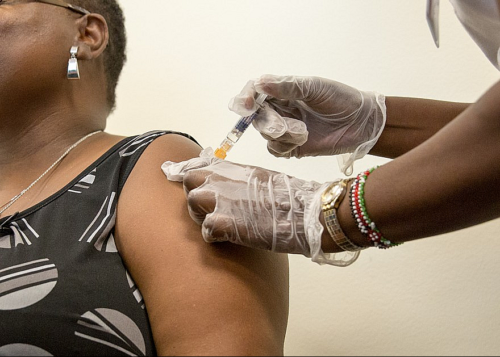To booster or not to booster that is the question! Well, U.S. public health officials and medical experts recently recommended that all vaccinated folks get a COVID-19 booster shot even though a whopping 40 percent of the population have yet to roll up their sleeves to receive a first dose.
Dr. Anthony Fauci, Biden’s chief medical adviser, presented recent evidence showing that an additional shot of either COVID-19 vaccine greatly increased antibodies against the virus that causes the virus. Booster shots will be offered to all Americans beginning the week of September 20th and starting 8 months after an individual’s second dose.
Folks who were fully vaccinated with the Pfizer or Moderna vaccines earliest in the rollout, including many health care providers, nursing home residents, and other seniors, will likely be eligible for a booster. Efforts will also begin to deliver booster shots directly to residents of long-term care facilities. About 154 million U.S. residents are eligible for the booster, federal data shows.
According to the U.S. Department of Health and Human Services, “Our top priority remains staying ahead of the virus and protecting the American people from COVID-19 with safe, effective, and long-lasting vaccines especially in the context of a constantly changing virus and epidemiologic landscape. We will continue to follow the science on a daily basis, and we are prepared to modify this plan should new data emerge that requires it.”
At press time, daily new COVID-19 cases have climbed to a six-month high in the United States, with more than 100,000 infections reported nationwide as the Delta variant ravaged Florida and other states with lower vaccination rates. The vaccinated can catch and transmit the variant in some cases, but vaccines help shield them from the worst symptoms. The unvaccinated, however, have no such protections.
Growing concerns about the delta variant prompted the Centers for Disease Control and Prevention to recommend a booster.
Still have questions about the COVID-19 booster shot? Hope you find a few answers here…
There is a booster shot and a third dose of the COVID-19 shot, what is the difference?
The two mRNA COVID-19 vaccines, Pfizer and Moderna, are now recommended to have a booster after 8 months from the second dose of the original two-dose series. There is no difference in the ingredients or amount of the booster vaccine for these two. It is important to point out the booster is only indicated for individuals who have already received the two-dose series.
The latest guidelines for severely immunocompromised individuals is to have them receive a third dose of the vaccine. Again, there is no difference in the ingredients or amount and dose. However, the timing is different. A third dose may be administered after 28 days from the second dose, while a booster is recommended after 8 months from the second dose. Third doses are for severely immunocompromised individuals whereas a booster is recommended for individuals 16 or older for Pfizer and 18 or older for Moderna.
Is the booster shot any different than the two doses of the vaccinations already received?
No, again, the booster shot is the same formulation as the first two vaccine doses already administered to millions of Americans and is intended to rev up the immune system against COVID.
What about a booster shot for those who received the Johnson & Johnson vaccination?
The U.S. Department of Health and Human Services anticipates booster shots will likely be needed for people who received the Johnson & Johnson (J&J) vaccine. Administration of the J&J vaccine did not begin in the U.S. until March 2021, and they expect more data on J&J in the coming weeks. They will keep the public informed with a timely plan for J&J booster shots as well.
Does receiving a booster mean you are no longer safe from COVID-19 after being vaccinated?
For now, anyone who has completed the two-dose COVID-19 vaccine course is considered fully vaccinated with a high degree of protection against the worst outcomes of the virus. The booster shot just maximizes vaccine-induced protection. Doctors are concerned, however, that protection against COVID-19 will wane in the months ahead for those who are at high risk or who were vaccinated early.
Can you mix vaccines with a booster shot?
Here in the U.S., the current public health recommendations are that people stick with the same type of vaccine for their booster. Mix and match vaccine strategies are still being investigated, so there are no formal recommendations.
Will the booster shot provide protection against the Delta variant?
A higher antibody response created by the booster shot will improve the body’s ability to quickly fight the virus and should lower the chance of similar transmission.
Why weren’t we informed early on that a booster shot might be needed?
Scientists are still studying the virus, its emerging variants, and how the vaccines can help combat them. As to how long the vaccines will offer protection from the virus is still being investigated, so, we will have to just make adjustments along the way.
